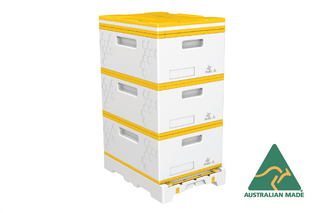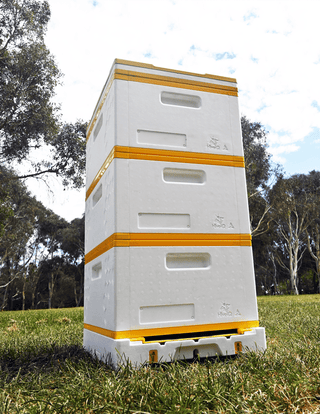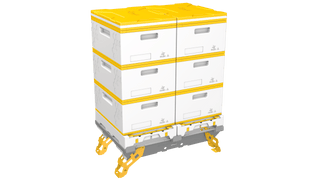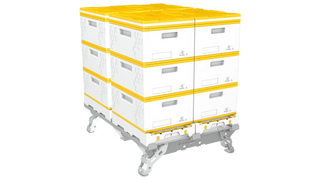Beekeeping is a rewarding journey that connects you to the fascinating world of these industrious insects. As a beekeeper, your role goes beyond collecting honey. Ensuring the health and well being of your bee colony is paramount. Here are some essential practices to keep your bee colony thriving.
Choose the Right Location: Just like in real estate, location matters in beekeeping. Select a spot with ample sunlight on the front of the hive and some shade during the hottest parts of the day. Ensure protection from strong winds, as it can make bees stressed and hinder their flight.
Provide a Varied Diet: Bees need a diverse diet for optimal health. Nectar and pollen are their primary sources of nutrition so consider planting a variety of bee-friendly flowers, herbs and trees around the hives. This ensures a well-rounded diet and promotes stronger immune systems.
Regular Hive Inspections: Perform thorough hive inspections every 3-4 weeks during the active season. Look for signs of disease, pests, or other issues. Early detection is key to preventing potential problems from spreading. Ensure the hive has enough honey and pollen stores to survive.
Maintain Hive Hygiene: Cleanliness is vital. Regularly scrape off excess propolis, wax and debris from the frames and hive components. Replace old and damaged equipment to prevent the buildup of pathogens and pests.
Manage Pests and Diseases: Monitor for common pests like Varroa mites and foulbrood diseases. Treat your hives with organic or chemical treatments when necessary. Research and adopt Integrated Pest Management (IPM) strategies to minimise the use of chemicals.
Proper Ventilation: Adequate ventilation helps the bees regulate temperature and humidity within the hive. Ensure your hives have proper ventilation to prevent moisture buildup, which can lead to mould growth and weaken the bees' immune system.
Swarm Prevention: Swarming is a natural reproductive behaviour of bees, but it will weaken a colony. To prevent swarming, provide ample space within the hive by adding supers (additional boxes) during the nectar flow season.
Queen Health: A strong and healthy queen is crucial for colony success. Consider replacing the queen if the brood pattern is poor, the hive hygiene is suffering or the bees are cranky. Also check to ensure the queen has enough space to lay eggs and provide more space if necessary.
Water Sources: Bees need water for cooling the hive and diluting honey stores. Provide a clean and accessible water source, such as a shallow dish with rocks for them to land on.
Beekeeping is a fulfilling journey that comes with its challenges. By following these guidelines, you'll be well-equipped to ensure the health and well-being of your bee colony. Your dedication to providing a nurturing environment for your bees will not only reward you with delicious honey but also contribute to the vital role these insects play in pollination and our ecosystem.
Remember, each bee colony is unique, and the specific needs of your bees may vary. Observing your hives closely and adapting your practices accordingly will help you develop a deeper understanding of your bees and enhance your beekeeping skills over time.
Transform your beekeeping journey by finding out more about our thermally superior, hygienic beehives.
Happy beekeeping!
Also read: The language of dance: how bees communicate







